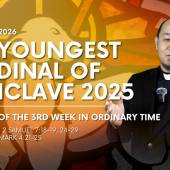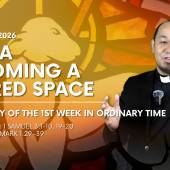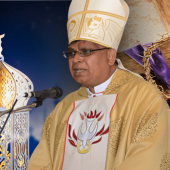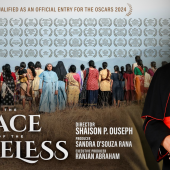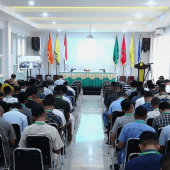Moral theologian forewarns media users: Man’s spiritual enemy uses truth to convey the untruth
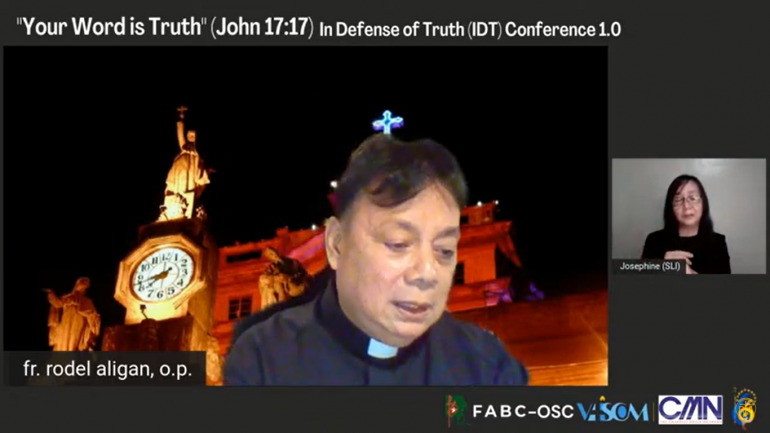
Dominican theologian Father Rodel C. Aligan told participants of a Truth Conference on October 5 that purveyors of untruth employ truth itself or parts of it to mask lies and sow confusion in the world.
The reason, Father Aligan explained, is that “evil is parasitic on the good and must survive by twisting things that are good in themselves.”
“Pure evil cannot be used to tempt” media audiences, he continued, that is why, it has to come across as truth but truth that is told, “in the wrong way, at the wrong time, or in the wrong context.”
Either way, this “underhanded” tactic effectively spreads confusion through fake news and disinformation, the priest added.
Fr. Aligan, who is the Dean of Ecclesiastical Faculties of the University of Santo Tomas in Manila, was speaking at the first “In Defense of Truth” online conference (IDT 1.0).
The event was organized by the Federation of Asian Bishops’ Conferences – Office of Social Communication (FABC-OSC), its training arm Veritas Asia Institute of Social Communication (VAISCOM), and their partners the Catholic Media Network-Philippines (CMN), and Mary the Queen Parish of Novaliches Diocese (MTQP).
To protect media users from attacks of the spiritual enemy, Fr. Aligan urged Christians “to be familiar with their own faith.”
They must know the truth in Church teaching and, quoting St. Thomas Aquinas, understand at the very least that “truth is the human mind’s conformity to objective reality.”
Falsehood, Fr. Aligan explained, is “propagated in media through the influence of spiritual powers on people, e.g. media practitioners, and through inordinate cravings of concerned stakeholders for material success derived from media use.”
To counter this, he said that media literacy must be integral to the school curriculum as well as pastoral ministry.
Being media literate, audiences and netizens alike would understand that all mediated content, however “natural” they may seem, are “carefully planned and constructed productions designed to achieve specific purposes.”
The media and social media construct versions of reality that audiences tend to adopt depending on their patterns of use as well as their presence online.
Media literacy is a 21st-century approach to education employed mainly in democratic settings. By “media literate,” Fr. Aligan said, audiences are able “to access, analyze, evaluate, create, and participate with messages in a variety of forms.”
Media literate audiences are able to unravel “the ideological and value systems of media texts.” They are practically aware of the workings of fake news, misinformation, disinformation, media bias as well as media distortion.
Fake news, said Fr. Aligan, are “false, fabricated, non-verifiable news stories” that must be understood for their “complex, nuanced, and often politicized” nature.
Misinformation, however false and inaccurate, are only spread inadvertently. There is no real intention to deceive on the communicator’s part.
Disinformation, meanwhile, intends to confuse, and outrightly deceive using satire or parody, fabricated content, manipulated content, impostor content, false content, as well as false context.
Media bias, on the other hand, comes in the form of sensationalism, flawed logic, bias by placement, opinions presented as facts, or the omission of credible sources and utilizes lies as well as misleading information.
And finally, an awareness of media distortion brings to the fore the fact that information accuracy dissipates as it travels farther from its original source. The more information is passed on, the more it gets distorted by people’s views and opinions.
At the end of his talk, Fr. Aligan reemphasized the need for media literacy across audience groupings, discernment in appropriating media content, as well as fact-checking sources of news and articles whether published online or in traditional media platforms.
He reminded Christians to inform their faith because an “informed faith” is better equipped to process content in today’s media landscape.
Fr. Aligan served as conference resource person in tandem with Rev. Fr. Jose Francisco Syquia, chief exorcist of the Archdiocese of Manila and director of the Archdiocese of Manila Office of Exorcism (AMOE).
The yearly IDT conferences seek to respond to the Church’s call of promoting and defending truth in the era of fake news and disinformation. IDT 1.0 explored the theme “Combating falsehood in media, bearing witness to the truth.”
The online conference was streamed live on the YouTube channel of Radio Veritas Asia, the Facebook pages of VAISCOM and MTQP Novaliches, and re-streamed on the YouTube channel of the Roman Catholic Archdiocese of Singapore (RCAS).
Radio Veritas Asia (RVA), a media platform of the Catholic Church, aims to share Christ. RVA started in 1969 as a continental Catholic radio station to serve Asian countries in their respective local language, thus earning the tag “the Voice of Asian Christianity.” Responding to the emerging context, RVA embraced media platforms to connect with the global Asian audience via its 21 language websites and various social media platforms.









